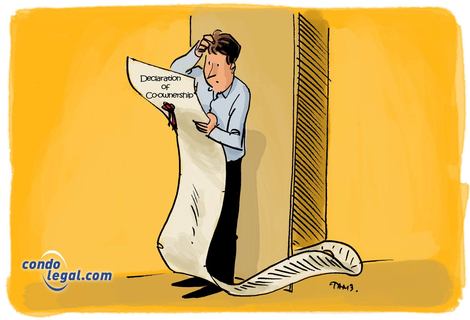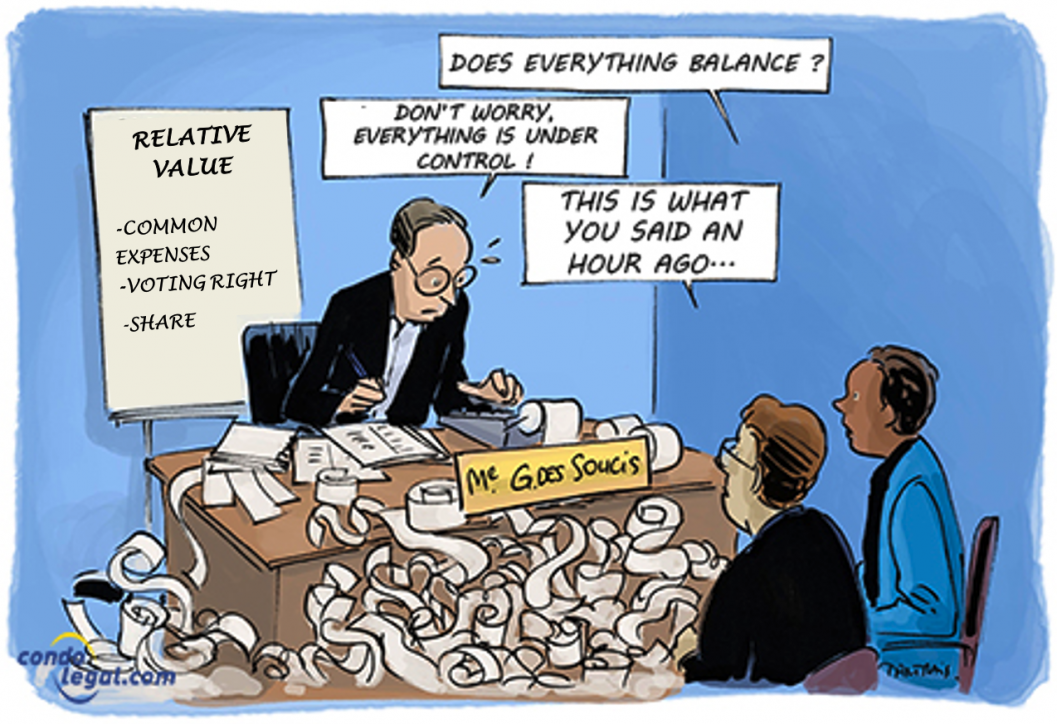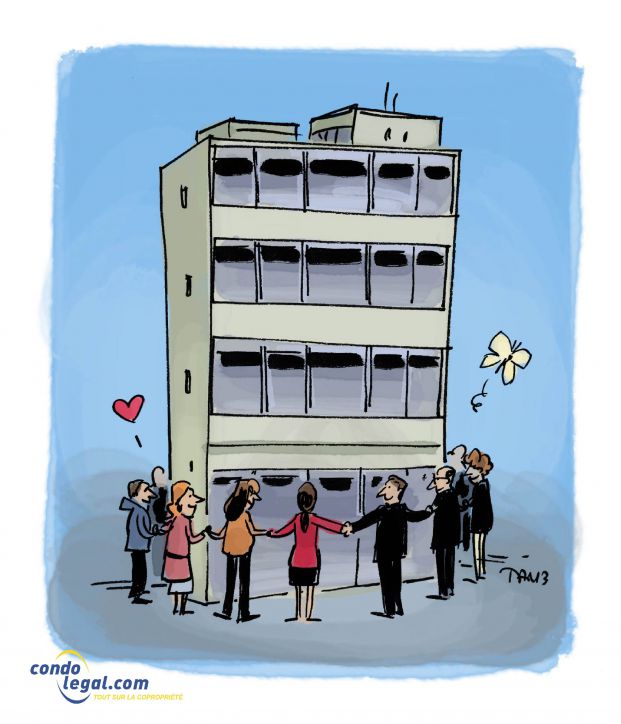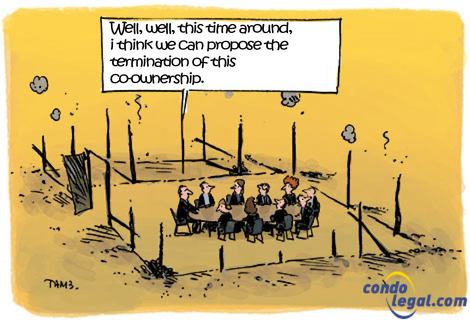21 Articles

A General Meeting of the co-owners cannot take place without an agenda. To deliberate in accordance with the Law, co-owners should be able to become aware, before the Meeting, of the questions on the agenda. This the reason why it should be annexed to the notice of call, usually prepared by the Board of Directors (Board). It contains all the questions to be tabled for deliberation during the Meeting of co-owners. This document must be clear…...

The declaration of co-ownership is an agreement that organizes and regulates the collective life of the of the co-owners and occupants of the building. This agreement defines their rights and obligations. As it is an authentic act, it must be received by a notary. The declaration of co-ownership is often signed by the developer who acts as sole proprietor, or sometimes, by undivided co-owners who wish to subject their immovable (held in co-ownership) to the…...

The destination of the immovable, of the private portions and of the common portions is a fundamental concept in co-ownerships. It is both a real regulator of the rights and obligations of co-owners and a reference value between the permit and the prohibited. The destination of the building is determined in the 1st part of the declaration of co-ownership (constituting act of co-ownership). It is it that also makes it possible to establish the type of co-ownership established and defines…...

Expenses related to the maintenance and administration of the common portions of a co-ownerships start from its constitution as a legal person. It is therefore necessary that each co-ownership sets up, upon publication of the declaration of co-ownership, a Board of Directors to administer it. This board of directors is the executive body of the syndicate and its legal representative. Its members act as the mandataries of the syndicate. To ensure the star up of the syndicate, the developer…...

The rules for voting in meeting of co-owners vary depending on the importance of the decision to be made. They require a complex calculations in order to determine whether a the required majority has been reached. To do so, you must make sure that the register of co-owners is up to date, and that the compilation of votes is done according to the relative value specific to each fraction. This reduces the risk of contestation of an adopted resolution. That said, some decisions have…...

The declaration of co-ownership generally contains the terms and conditions concerning the conduct of the meeting of co-owners by defining rules of procedure and the role of the meeting officers. Key figures of the assembly of co-owners, they ensure the smooth running of it. Their appointment is therefore necessary for the holding of any meeting of co-owners. These are generally elected at the start of the meeting, in a separate vote taken by an absolute…...

Divided co-ownership is a housing formula that usually has more than one owner. In order to assess and quantify the interest of each person in the building, the legislator has provided that the right of ownership of each owner in the common portions is proportional to the relative value of his fraction. To determine the relative value of a unit, it must be compared with the value of all the other units of the co-ownership. The…...

The syndicate of co-owners, as a legal person, has juridical personality, which allows it to contract with third parties, hire employees, hold and dispose of property or exercise legal remedies to protect its assets and ensure the defense of the collective interests of the co-owners.He plays a crucial role in a co-ownership, as it is its legal representative. A legal person constituted of all the co-owners (the collectivity of the co-owner) and governed…...

The divided co-ownership of a building is not necessarily intended to last for eternity. The end of the co-ownership, and therefore the dissolution and liquidation of the syndicate, is justifiable, for various reasons. The dissolution of a co-ownership leads to a liquidation process. This process is regulated by articles 1108 and 1109 of the Civil Code of Québec, which refer to the rules applicable to legal persons concerning their liquidation.The question of putting an end to your co-ownership may one day arise. There are…...

It is possible to make a decision without having a meeting. Article 354 of the Civil Code of Québec recognizes the value of a written resolution: "Resolutions in writing signed by all the persons qualified to vote at a meeting are as valid as if passed at a meeting of the board of directors, at a general meeting or at a meeting of any other organ. " The co-owners and directors may vote on a…...
